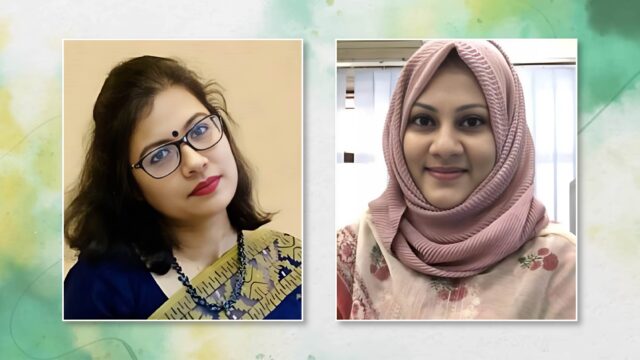The Organization for Women in Science for the Developing World (OWSD) proudly announces the selection of two exceptional Bangladeshi women for the 2023 Early Career Fellowships. Sunanda Baidya, Associate Professor in the Department of Biochemistry & Molecular Biology at the University of Chittagong, and Tahsina Farah Sanam, Associate Professor at the Institute of Appropriate Technology, Bangladesh University of Engineering and Technology, have been recognized for their groundbreaking research initiatives.
Funded by Canada’s International Development Research Centre (IDRC), the Early Career Fellowships initiative aims to elevate global research standards in the Global South and foster collaboration within the scientific community.
Sunanda Baidya: Unraveling the Mysteries of HNSCC
Associate Professor Sunanda Baidya’s research focuses on the toll-like receptor TLR4 in Head and Neck Squamous Cell Carcinoma (HNSCC). Her groundbreaking work seeks to understand the intricate relationship between TLR4 expression and tumor development, immune evasion, and chemoresistance in HNSCC. Baidya’s efforts aim to enhance our comprehension of cancer progression, potentially identifying therapeutic targets in various cancers, including prostate, colon, and gastrointestinal.
Tahsina Farah Sanam: Revolutionizing Autism Spectrum Disorders Diagnosis
Associate Professor Tahsina Farah Sanam is leading a pioneering project that employs machine learning for the detection and recognition of multi-stroke gestures and Bangla Sign Language in children with Autism Spectrum Disorders (ASD). Utilizing Wi-Fi Channel State Information (CSI) signals, Sanam’s innovative approach aims to overcome the limitations of traditional, often intrusive methods for analyzing and evaluating behavioral patterns in children with ASD. The project holds the potential to revolutionize the quality of life and social services for those with ASD, providing non-intrusive surveillance systems to aid clinicians in diagnosis.
The three-year fellowships not only provide financial support but also offer leadership and management training, enhancing communication and outreach skills among the recipients. The goal is to translate these research endeavors into marketable products or impactful societal contributions, ensuring the sustainability and global relevance of their projects.
This year’s cohort of fellows is working on diverse subjects, including biowaste recycling and biomedical innovations, showcasing OWSD’s commitment to advancing scientific knowledge and addressing critical global challenges. The inclusion of first-time fellows from countries such as Eswatini, El Salvador, and Côte d’Ivoire highlights the program’s expansive and inclusive approach.




















